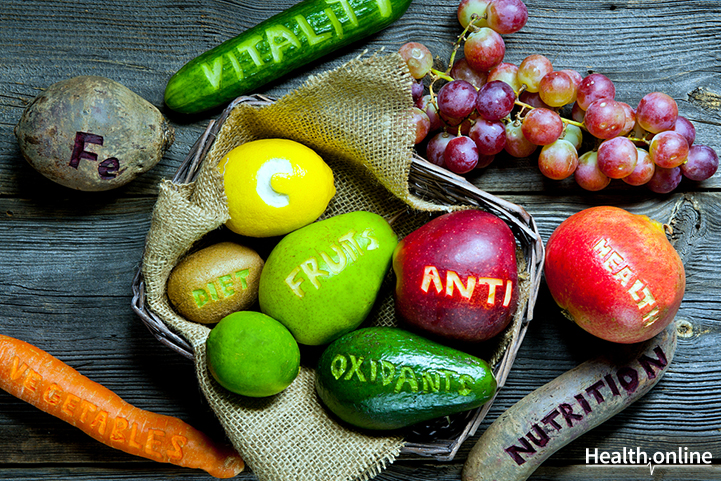
All You Need to Know About Antioxidants
If you observe stores and online portals that sell health products, you will come across one word frequently- Antioxidants. Every product in the market seems to contain antioxidants. Antioxidants are virtually a mantra in the healthcare industry. But what are these antioxidants, and are they really worth all the fuss? Read on for the answer to these, and other questions.
Before understanding antioxidants, you must learn what oxidation is all about. Try answering this question – why do cells die? The answer – they age! But what causes this aging? Well, here’s the answer to that – your cells undergo damage each day due to oxidation. When they reach a critical point, they die altogether. That’s what happens to your genes as well. They undergo oxidative damage, and their structure keeps changing till a point when death takes over. All these are due to oxidation.
If you want a better idea of the effects of oxidation, look at people who’ve got skin cancer due to excessive contact with the sun. Their skin cancer is due to oxidative damage to the cells of the skin. If you have understood this, then anti-oxidation is all about preventing, controlling or reversing the effects of oxidation. Another way to understand oxidation is to observe the cut surface of an apple. When you leave it exposed to the air for some time, it becomes brown.
How do antioxidants prevent this damage?
Antioxidants act mainly by neutralizing free radicals. And what are free radicals, you might be wondering? Here’s the answer – Every atom contains eight electrons. These electrons are necessary to maintain the structure of the atom. When one of the electrons get knocked off, it becomes a free radical, which can combine with the electrons of other atoms. When this happens progressively, it affects the structure of the body as a whole. Antioxidants serve to neutralize these free radicals, thereby preventing the whole cascade of events leading from the formation of one free radical to the macromolecular damage. Free radicals are the culprits in aging, cancer and other diseases.
What are the types of antioxidants?
Now that you know about antioxidants and how they operate, it is time to learn about the types of antioxidants. Nature has a rich supply of antioxidants, with a few of them being of particular interest. Here are the antioxidants that you must know for sure:
- Astaxanthin,
- Enzymes- Superoxide Dismutase
- Vitamins A, C, and E
- Beta-carotene
- Selenium,
- Lycopene,
- Lutein,
- Coenzyme Q10,
- Phytic acid,
- Flavonoids
- Polyphenols
Antioxidants are generally classified as being water-soluble (hydrophilic) or fat-soluble (hydrophobic). Water-soluble antioxidants are for the oxidants in the cytosol and blood plasma of the cell, while fat-soluble antioxidants are to protect the cell membranes from lipid peroxidation.
What are the sources of antioxidants?
If you are seeking a good source of antioxidants, then don’t look to any further than your body. But considering the oxidative stress that the current human race is undergoing, in the form of pollution, climate change, ozone layer depletion, etc. it is not enough. This mandates the external supply of antioxidants daily through regular food intake. Here are some foods that are loaded with antioxidants:
- Dark green vegetables (kale, Brussels sprouts, collards, spinach, broccoli, etc.
- Orange vegetables and fruits (apricots, carrots, pumpkins, peaches, cantaloupe, etc.)
- Red vegetables and fruits (tomatoes, red peppers, pink grapefruit, watermelon, cranberries, papaya, etc.)
- Purple vegetables and fruits (blueberries, grapes, pomegranate, etc.)
- Whole grains, oats, and seeds
- Beans
- Proteins (seafood, chicken, red meat, eggs, pork, etc.,)
- Other sources: green tea, cocoa, coffee, potatoes, garlic, and certain spices like oregano, cinnamon, cloves, and turmeric
- Antioxidant supplements
What are the benefits of antioxidants?
There are innumerable benefits of antioxidants. There is an antioxidant that can benefit every part of your body, from head to toe. There are antioxidants that specifically act on certain body parts. For instance, vitamin E that has great beneficial effects on the skin. Beta-carotene, on the other hand, serves to protect the eyes.
How to take antioxidants?
Now that you know what antioxidants are and where you find them, the next step is to know how to manage your intake of antioxidants. Here are few ways to make sure that you have adequate antioxidants:
- Include green leafy vegetables in your diet daily. You can take them as a part of your lunch.
- Take whole grains or oats for breakfast.
- Make sure that you eat orange fruits and vegetables like carrots, pumpkins, apricots, etc. twice or thrice a week.
- Red vegetables and fruits like tomatoes, papaya, and watermelon, should be consumed at least twice a week.
- Eat purple vegetables and fruits once a week
- Include beans in your diet.
- Ensure adequate animal proteins like eggs, red meat, chicken, and seafood twice a week.
- Consume green tea daily.
- Include spices in your food.
- Never miss garlic and turmeric from your diet.
- If you still feel that you are still deficient in antioxidants, then take supplements.
Other effective ways to protect yourself from oxidative damage including wearing sunscreen, and avoiding engaging in activities that might increase the oxidative damage. To summarize, antioxidants are a crucial part of your efforts to live a longer and healthier life.




